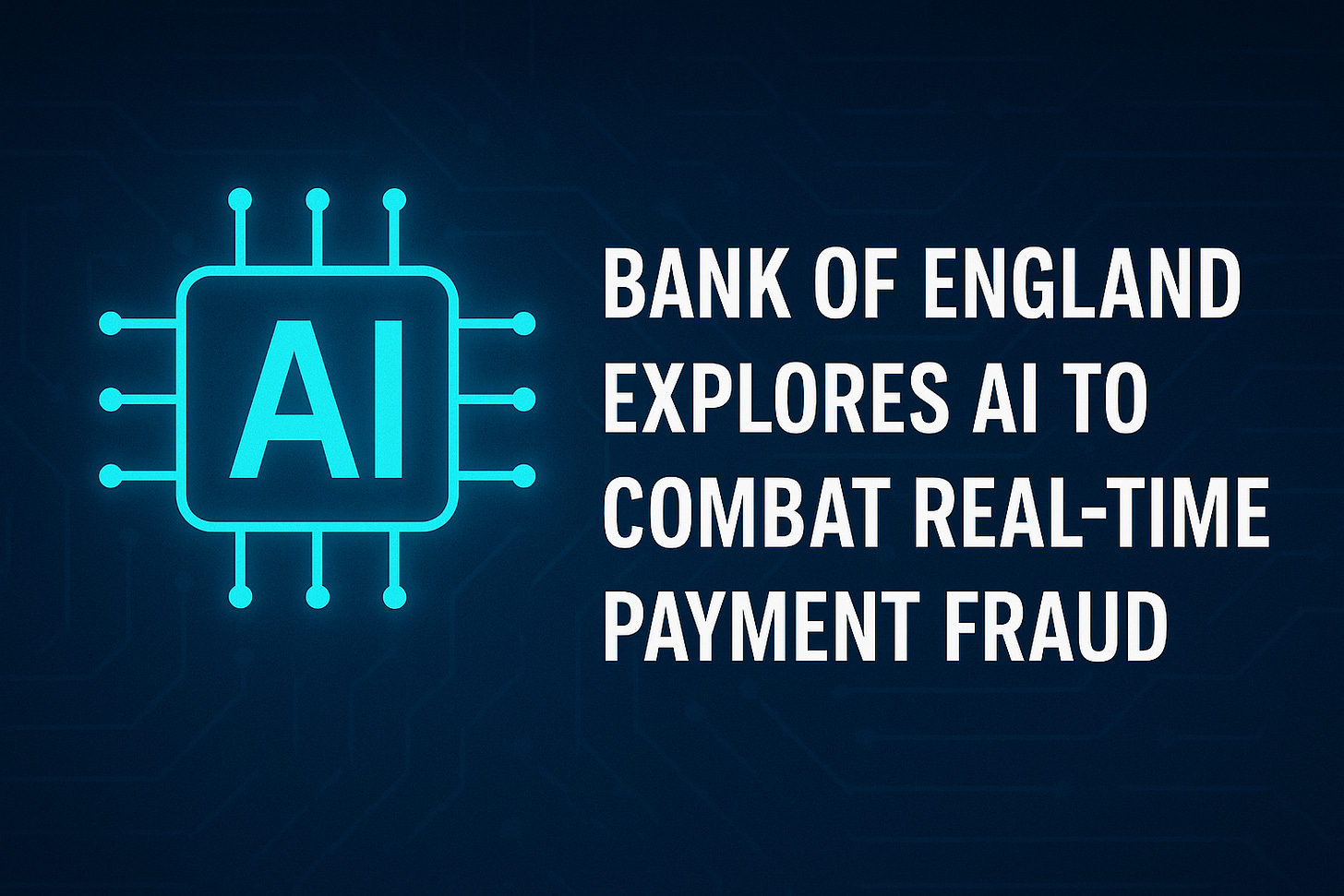The £1.2 Billion Question: Are we ready for Agentic AI in Financial services?
Issue 723: 13 June 2025
The £1.2 Billion Question: Are we ready for Agentic AI in Financial services?
Neira Jones has been trying to make sense of all the buzz around agentic AI, and her musings have resulted in an extremely readable paper: "𝗧𝗵𝗲 £𝟭.𝟮 𝗕𝗶𝗹𝗹𝗶𝗼𝗻 𝗤𝘂𝗲𝘀𝘁𝗶𝗼𝗻: 𝘈𝘳𝘦 𝘞𝘦 𝘙𝘦𝘢𝘥𝘺 𝘧𝘰𝘳 𝘈𝘨𝘦𝘯𝘵𝘪𝘤 𝘈𝘐 𝘪𝘯 𝘍𝘪𝘯𝘢𝘯𝘤𝘪𝘢𝘭 𝘚𝘦𝘳𝘷𝘪𝘤𝘦𝘴?"
The white paper seeks to help decision makers, whether in the boardroom, the risk committee, or leading a digital transformation, navigate the opportunities and pitfalls of agentic AI.
Neira says:
I wrote this paper because I’ve seen first-hand how innovation, left unchecked, can outpace our ability to govern, explain, and trust the systems we rely on.
As someone who has spent a career at the intersection of risk, regulation, and technology, I know that the best outcomes come from asking tough questions and embracing change with eyes wide open.
I’ve tried to make it practical, thought-provoking, and maybe even a bit fun (because who says compliance can’t have a sense of humour?).
The future isn’t just automated, it’s transparent and accountable. Let’s build it that way.
Download:
Bank of England Explores AI to Combat Real-Time Payment Fraud
In a collaborative initiative with the Bank for International Settlements (BIS) Innovation Hub, the Bank of England has undertaken Project Hertha to assess the potential of artificial intelligence (AI) in detecting real-time payment fraud.
This project involved the creation of a synthetic dataset comprising 1.8 million bank accounts and 308 million transactions, simulating realistic transaction patterns to test AI’s efficacy in identifying complex and coordinated criminal activities within payment systems.
The findings revealed that integrating AI into payment system analytics could serve as a valuable supplementary tool for banks and payment service providers (PSPs).
Specifically, participants were able to identify 12% more illicit accounts than traditional methods alone. Moreover, the AI system demonstrated a 26% improvement in detecting previously unseen fraudulent behaviours, highlighting its potential in uncovering novel financial crime patterns.
Despite these promising results, the Bank of England acknowledged certain limitations in the application of AI for fraud detection. The study emphasized the necessity for labeled training data, robust feedback mechanisms, and explainable AI algorithms to enhance effectiveness.
Additionally, the implementation of such AI solutions would entail complex practical, legal, and regulatory considerations, which were beyond the scope of Project Hertha.
This exploration underscores the potential of AI as a complementary asset in the fight against payment fraud, while also highlighting the importance of addressing the associated challenges to fully realize its benefits.
Live Comparison: How do you measure up?
How do you measure up in meeting customer expectations and in your digital payments transformation strategy?
Take part in Bottomline’s Fifth Annual 'Future of Competitive Advantage in Banking and Payments' Benchmarking Survey:
Five Years of Confirmation of Payee
The UK’s Confirmation of Payee (CoP) service is an industry-wide initiative that looks to safeguard against misdirected payments and combat fraud.
Introduced in 2020, and adopted initially by just six UK banking groups, the service has since grown in repute and is now used by over 320 organisations, covering more than 99% of organisations initiating Faster Payments in the UK.
Here’s Confirmation of Payee’s journey in the UK over the last five years, from inception to expansion, and how it has transformed the payments landscape.
Source: Pay.UK
More:
Australian Payments Plus to bring least-cost routing to online Cick to Pay transactions
Australian Payments Plus (AP+) has selected Giesecke+Devrient (G+D) to develop eftpos Click to Pay with integrated least-cost routing (LCR), a project that is billed as a world first for online debit card payments.
Banking Hub comes to Maldon
Cash as a Payments Infrastructure
Enryo and OneBanx have published a new whitepaper showing how a focus on the high street and access to cash will support a robust, inclusive payments infrastructure.
The White Paper identifies three challenges that require attention to ensure access to cash and face-to-face banking remains viable:
Reassessing the role of cash to understand the role it plays in most people’s day-to-day lives and as a contingency payment method.
Addressing the coin dilemma by introducing coin deposit facilities to support SMEs and a coin return programme to bring dormant coin back into circulation.
Identifying new channels for digital inclusion and recognising the role that High Street banking can play to ensure that the benefits of digital services are realised by all.
Download the whitepaper here:
JPMorgan opens Fintech Forward programme in the UK
JPMorgan has opened applications for a new fintech accelerater programme for startups and business founders in the UK.











